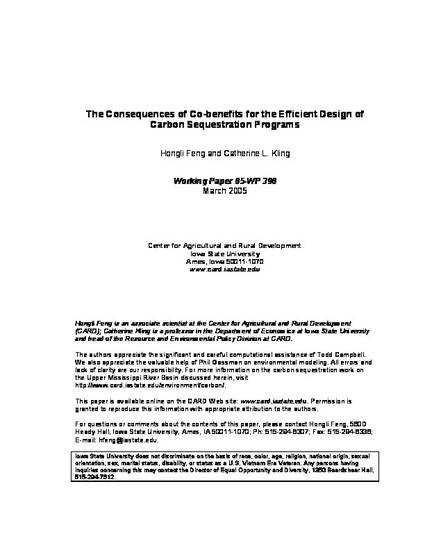
Other
The Consequences of Co-benefits for the Efficient Design of Carbon Sequestration Programs
CARD Working Papers
Publication Date
3-1-2005
Series Number
05-WP 390
Abstract
In this paper, we study the social efficiency of private carbon markets that include trading in agricultural soil carbon sequestration when there are significant co-benefits (positive environmental externalities) associated with the practices that sequester carbon. Likewise, we investigate the efficiency of government-run conservation programs that are designed to promote a broad array of environmental attributes (both carbon sequestration and its co-benefits) for the supply of carbon. Finally, policy design and efficiency issues associated with the potential interplay between a private carbon market and a government conservation program are studied. Empirical analyses for an area that represents a significant potential source of carbon sequestration and its associated co-benefits illustrate the magnitude and complexity of these issues in real-world policy design.
Disciplines
Citation Information
Hongli Feng and Catherine L. Kling. "The Consequences of Co-benefits for the Efficient Design of Carbon Sequestration Programs" (2005) Available at: http://works.bepress.com/catherine_kling/29/
